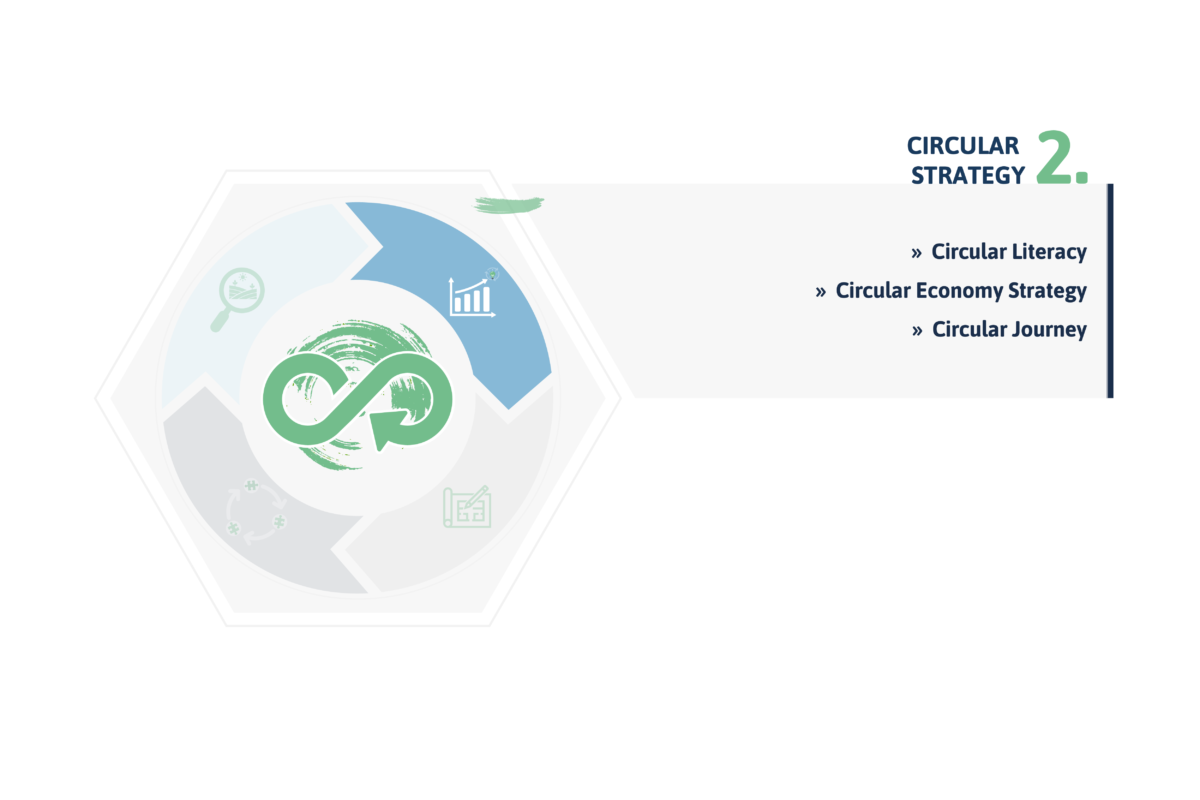Circular Economy
The «Circular Economy» plays a significant role in addressing ecological, strategic and economic challenges.
In today’s economic system, linear processes dominate. In a linear economy, resources are extracted, products are manufactured, consumed, and then disposed of. This approach is resource and greenhouse gas-intensive, leading to high levels of waste and leaving economic potentials untapped in the extended product lifecycle.
In contrast, the circular economy represents a regenerative model. Resources are kept within the loop with the highest possible value, and waste as well as environmental impact are minimized throughout the product lifecycle. As a result, the circular economy significantly contributes to solving ecological, strategic, and economic challenges.
For businesses, a transformation towards a circular economy often requires a shift in established processes. However, it also unlocks unique opportunities to enhance competitiveness and generate economic value.
Circular economy offers businesses unique opportunities to enhance competitiveness and generate economic value.
Foster innovation
Harnessing circular business potentials, closely interconnected with partners in the ecosystem, fosters innovation within the company by
- Developing future-proof technologies and materials
- Establishing new business models around products and services
- Cultivating an innovation culture through ecosystem collaboration
Strengthen Brand Image
Organizing entrepreneurial activities as a circular economy demonstrates a commitment to sustainability and enhances brand image by
- Tangible sustainability in the product and service portfolio
- Authentic communication of sustainable values
- Quantifiable initiatives in ESG reporting
Protect Resource
The transformation of business processes towards a circular economy is a key enabler for achieving sustainable goals by
- Using circular input materials and secondary raw materials
- Sustainable production with minimal carbon footprint
- Extending product lifespan and resource utilization
Increase Resilience
Transitioning business operations to circular practices enhances the company’s resilience by
- Strengthening customer and partner engagement in circular business models
- Reducing global dependencies in the supply chain
- Increasing agility in mindset and through networking
Our Service Portfolio
Our Circular Solutions Team accompanies you from the initial idea of circular economy to the successful implementation of circular solutions.
1. Circular orientation
- Maturity Level Assessment: Assessing the circular status quo of the entire company
- Life Cycle Assessment: Creating (product) environmental assessments following DIN EN ISO 14040/-44
- Regulatory Radar: Establishing a structured and transparent overview of relevant regulations and identifying actions
2. Circular strategy
- Circular Literacy: Empowering and educating teams on knowledge, collaboration, and opportunities
- Circular Economy Strategy: Collaboratively formulating a strategy including a long-term vision
- Circular Journey: Developing an implementation roadmap and defining a clear framework for actions
3. Circular business opportunities
- Business Opportunities from Circular Business Models: Jointly identifying company-specific business models and deriving related action fields
- Circular Governance: Shaping the organizational model for realizing potentials and transitioning towards a circular economy
- KPI Dashboard: Developing and establishing measurable goals and criteria for steering the circular development
4. Circular Implementation
- Piloting Circular Business Solutions: Implementing first pilots to test feasibility and potentials
- Reverse Logistics & Remanufacturing: Developing circular logistics processes and implementation steps (including user interaction, partnerships, internal activities)
- Preparation/audit environmental management: Establishing an efficient management system according to ISO 14001
- Sustainable Sourcing: Setting supplier criteria and measuring sustainability in the supply chain








